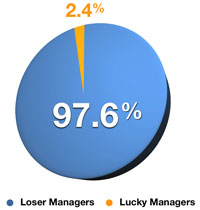
 As a newer investor, you should also be aware that you can save some research time by investing in mutual funds instead of individual stocks. Mutual funds contain a mix and diversity of stocks in which you will spread out one investment into many small blocks of shares.
As a newer investor, you should also be aware that you can save some research time by investing in mutual funds instead of individual stocks. Mutual funds contain a mix and diversity of stocks in which you will spread out one investment into many small blocks of shares.
Mutual funds and ETFs (exchange traded funds) have been available since the mid-1970s (mutual funds) and early 1990s (ETFs), attracting billions of investment dollars. An easy way for investors to diversify their portfolio without doing extensive research on individual companies and stocks, they are attractive to the casual or, perish the thought, lazy investor. Over time, mutual funds, ETFs, and Index ETFs (funds specializing in and tied to an industry index) have performed quite well.
You should understand, however, that few of these funds have outperformed the market in general. More than 90% of mutual funds fail to beat the S&P 500 index (a compilation of the 500 biggest U.S. stocks) every year, making mutual funds an expensive way to pay for diversification and risk management.
One of the many reasons that funds cannot beat the markets is because of the obvious expenses that they have. They buy ads in magazines and on TV. They have large legal and accounting expenses. And they have to mail you your statements every month. Some mutual funds charge rather large fees for trades and/or management. Always learn about these fees before you decide which mutual fund is best for you. In most cases, these fees reduce your return by 0.50-2.00% and make investing in individual stocks by yourself the logical choice.
One of the myths about the stock market is that you get what you pay for and that by paying big fees, you’ll get a big return on your return. That simply isn’t true and, in fact, the opposite is more often true: low fees and no expenses usually lead to the biggest returns on your money.
To learn about other market myths, see Myths About Stock Market Investing.
The stock markets of the world are a wonderful opportunity to increase your wealth. However, you must bring your brain and knowledge with you when you enter these waters. It’s important that you learn all that you can about the market: how it works, market cycles, how it faces roadblocks and problems, and how you should react to the highs and lows that eventually occur. Be strong, be confident, be smart, hopefully be lucky – and be profitable!